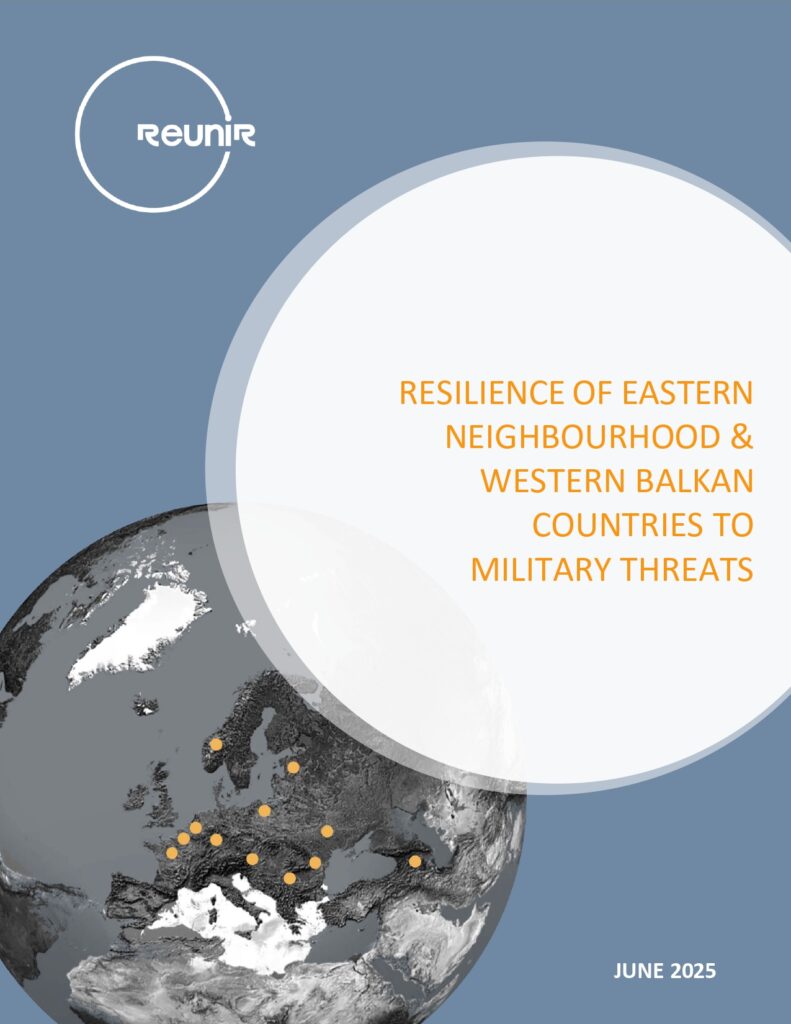Executive summary
This Working Paper, the second deliverable of REUNIR Work Package 3, aims to understand how resilient the nine Candidate Countries of the Western Balkans and Eastern Neighbourhood are to military threats, as well as the EU’s present capacity to assist in building resilience to such threats in these countries.
For each of the Candidate Countries, we provide a series of resilience assessments, based on several, mostly quantitative, indicators of defence capacity and vulnerability, and on a profile of the defence landscape that describes more qualitative factors. These profiles are partly informed by data gathered in expert interviews and focus groups conducted in each of the Candidate Countries. We also identify the EU’s most important tools of integration and intervention in defence and security. These existing EU tools may be used in the future to enhance resilience in the Candidate Countries; some have already been employed to do so—and thus contribute to our considerations of their resilience. To summarise, we provide, on a low-medium-high scale, an assessment of the resilience of each of the nine Candidate Countries to the employment of each of the six military instruments identified in the first deliverable of this Work Package.
These assessments demonstrate various levels of exposure to the range of military instruments that may be employed against the Candidate Countries by third state actors. The quantitative indicators demonstrate that, with few exceptions, resilience in the Western Balkans and Eastern Neighbourhood is weaker than average levels in the EU. This finding is supported by the more qualitative data collected through interviews and focus groups conducted in the two regions, and by assessments found in open literature. The EU has several tools of integration and intervention in the military and hard security domain that might assist in building resilience in the Candidate Countries. However, apart from the presence of EUFOR in Bosnia and Herzegovina and the EU’s remarkable efforts in supporting Ukraine through the European Peace Facility and the EU Military Assistance Mission, these tools have had minimal impact, if they have been deployed at all.
In later work, we will identify and evaluate options for building a more resilient and stronger EU foreign, security and defence toolbox to counter military threats on the European continent.

